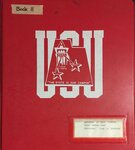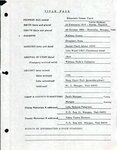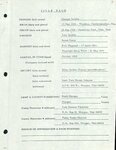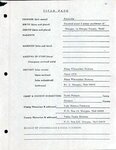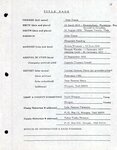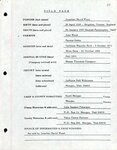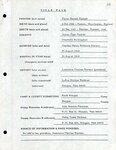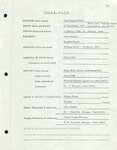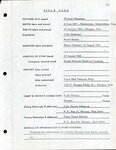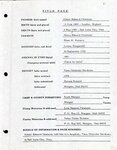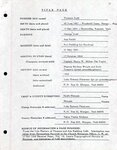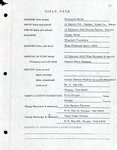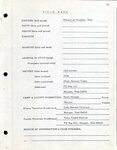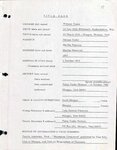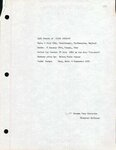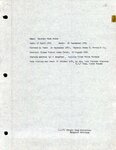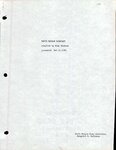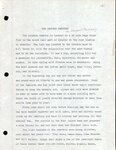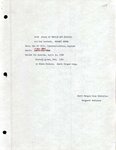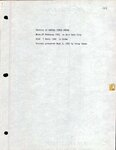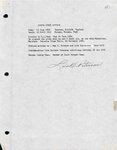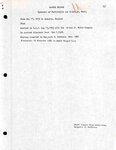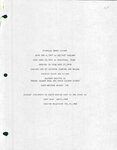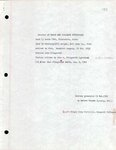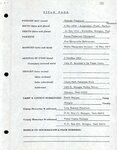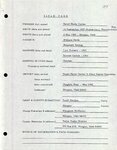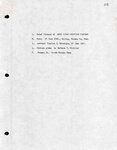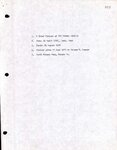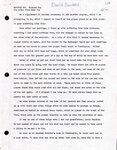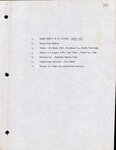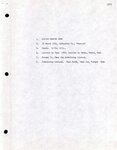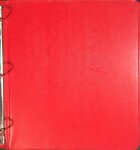| Title |
014_Pioneer Histories Compiled by South Morgan Camp (DUP Book 11) |
| Creator |
Peterson, Lola D. |
| Contributors |
Daughters of Utah Pioneers, Morgan County |
| Description |
In the early part of the 1900s Daughters of Utah Pioneers historians interviewed pioneers and their children and wrote or gathered the histories. |
| Biographical/Historical Note |
Histories given in the South Morgan Daughters of Utah Pioneers Camp, 1983-1984. |
| Subject |
Morgan County (Utah)--History; Mormon pioneers; Mormons--Utah |
| Digital Publisher |
Stewart Library, Weber State University, Ogden, Utah, USA |
| Date Original |
1946; 1947; 1948; 1949; 1950; 1951; 1952; 1953; 1954; 1955; 1956; 1957; 1958; 1959; 1960; 1961; 1962; 1963; 1964; 1965; 1966; 1967; 1968; 1969; 1970; 1971; 1972; 1973; 1974; 1975; 1976; 1977; 1978; 1979; 1980; 1981; 1982 |
| Date |
1946; 1947; 1948; 1949; 1950; 1951; 1952; 1953; 1954; 1955; 1956; 1957; 1958; 1959; 1960; 1961; 1962; 1963; 1964; 1965; 1966; 1967; 1968; 1969; 1970; 1971; 1972; 1973; 1974; 1975; 1976; 1977; 1978; 1979; 1980; 1981; 1982 |
| Date Digital |
2017 |
| Temporal Coverage |
1840; 1841; 1842; 1843; 1844; 1845; 1846; 1847; 1848; 1849; 1850; 1851; 1852; 1853; 1854; 1855; 1856; 1857; 1858; 1859; 1860; 1861; 1862; 1863; 1864; 1865; 1866; 1867; 1868; 1869; 1870; 1871; 1872; 1873; 1874; 1875; 1876; 1877; 1878; 1879; 1880; 1881; 1882; 1883; 1884; 1885; 1886; 1887; 1888; 1889; 1890; 1891; 1892; 1893; 1894; 1895; 1896; 1897; 1898; 1899; 1900; 1901; 1902; 1903; 1904; 1905; 1906; 1907; 1908; 1909; 1910; 1911; 1912; 1913; 1914; 1915; 1916; 1917; 1918; 1919; 1920; 1921; 1922; 1923; 1924; 1925; 1926; 1927; 1928; 1929; 1930; 1931; 1932; 1933; 1934; 1935; 1936; 1937; 1938; 1939; 1940; 1941; 1942; 1943; 1944; 1945; 1946; 1947; 1948; 1949; 1950; 1951; 1952; 1953; 1954; 1955; 1956; 1957; 1958; 1959; 1960 |
| Medium |
histories |
| Item Description |
Red loose leaf 3-ring binder. This book contains 32 typewritten pioneer histories on 301 pages. |
| Spatial Coverage |
Morgan County, Utah, United States, http://sws.geonames.org/5778525/ |
| Type |
Text |
| Conversion Specifications |
JPG images were scanned with a Kodak PS50 scanner. Transcription using ABBYY Fine Reader. PDF files were created for general use. |
| Language |
eng |
| Rights |
Materials may be used for non-profit and educational purposes; please credit Morgan County Daughters of Utah Pioneers, Morgan, Utah. |
| Source |
Daughters of Utah Pioneers, Morgan County |
| Format |
application/pdf |
| ARK |
ark:/87278/s6gkfr1f |
| Setname |
wsu_mdupc |
| ID |
47858 |
| Reference URL |
https://digital.weber.edu/ark:/87278/s6gkfr1f |

